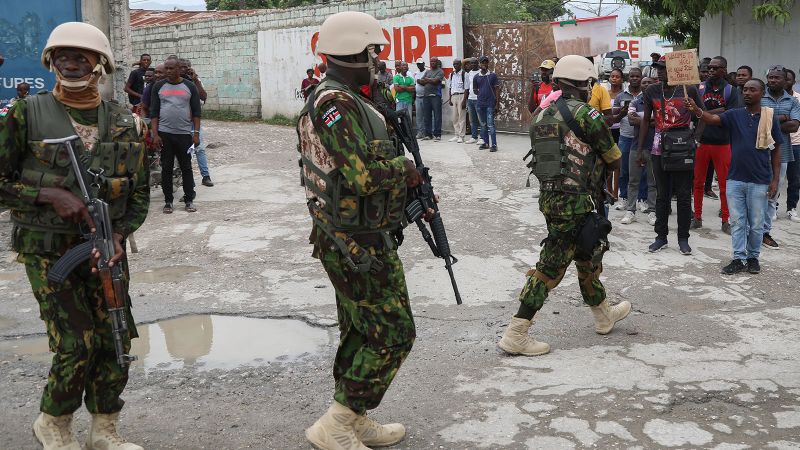
Kenyan police deployed to Haiti haven’t received full promised salary in two months
CNN
Hundreds of Kenyan officers are leading an international force in Haiti, but have not received full pay amid a rocky start in the gang-plagued Caribbean nation.
Hundreds of Kenyan police officers leading an international policing force in Haiti have not received their full pay for two months, the latest complication in what has been a rocky start to the security mission in the gang-plagued Caribbean nation. The first Kenyan officers deployed to Haiti arrived in June, the vanguard of a multinational security support mission (MSS) that is being funded largely by the United States. There are now around 400 Kenyan police in the country, many from specialized units. In an August 25 statement acknowledging delays to payments, the MSS announced that officers could expect the missing funds to hit their bank accounts this week. “Therefore, there is nothing to worry about (regarding) welfare issues of the MSS officers, since mainstream processes have been finalized,” the MSS added. In a “progress report” released Monday, Kenya’s National Police Service (NPS) said that the officers were continuing “to draw their NPS salaries” while waiting for the supplemental pay for their MSS duties. Kenyan officers had expected to be paid a significant supplement for their Haiti deployment – a grueling assignment more typical of a military than of a police force. Officers are not allowed to leave their base in the Haitian capital Port-au-Prince during non-working hours.













